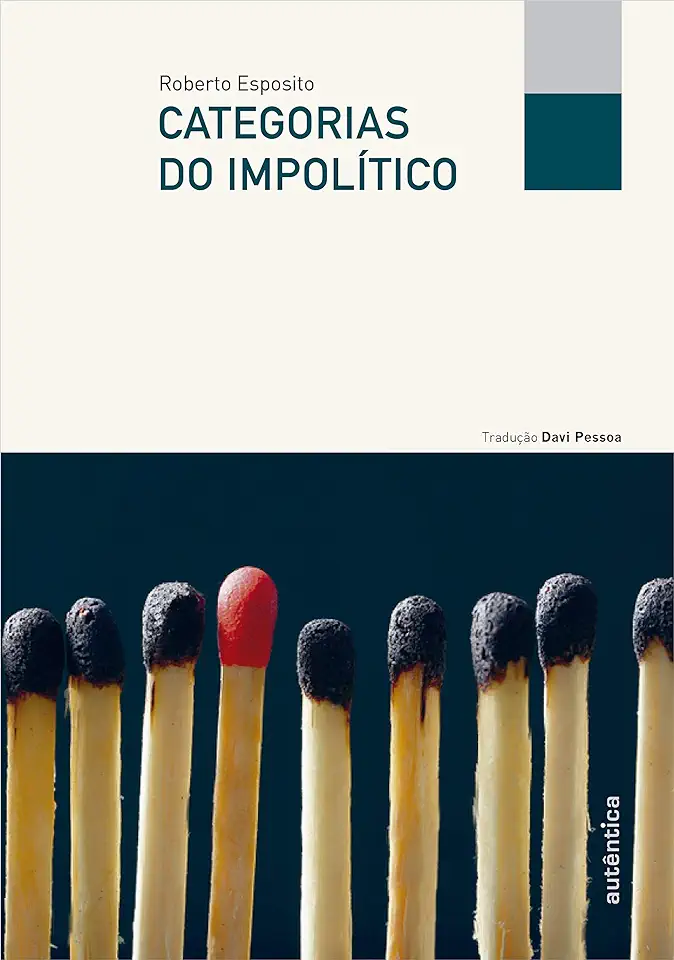
Categories of the Impolitical - Roberto Esposito
Categories of the Impolitical: A Book Review
Roberto Esposito's Categories of the Impolitical is a challenging and provocative work of political philosophy that offers a new way of thinking about the relationship between politics and the social. Esposito argues that the traditional categories of political thought, such as the state, sovereignty, and citizenship, are no longer adequate to describe the contemporary world. In their place, he proposes a new set of categories, such as community, immunity, and biopolitics, that better capture the complex and fluid nature of contemporary politics.
Community
Esposito begins by arguing that the traditional notion of community is no longer adequate to describe the contemporary world. In the past, community was understood as a bounded and homogeneous group of people who shared a common identity. However, in today's globalized world, communities are increasingly diverse and fluid. People are no longer tied to a single community, but rather belong to multiple communities that overlap and intersect.
Esposito's concept of community is based on the idea of "communitas," which refers to the sense of shared belonging that arises from common experiences and practices. Communitas is not something that is given, but rather something that is constantly created and recreated through social interaction. It is a dynamic and fluid concept that is constantly changing and evolving.
Immunity
Esposito also argues that the traditional notion of immunity is no longer adequate to describe the contemporary world. In the past, immunity was understood as a form of protection from disease or harm. However, in today's world, immunity is increasingly seen as a form of control and exclusion. The state, for example, uses its power to immunize itself from the threats posed by its citizens. It does this by creating laws and regulations that limit the freedom of citizens and by excluding those who are deemed to be dangerous or undesirable.
Esposito's concept of immunity is based on the idea of "biopolitics," which refers to the ways in which power is exercised over life and death. Biopolitics is not simply about the physical destruction of life, but also about the control and regulation of life. It is a form of power that seeks to shape and mold life according to certain norms and values.
Biopolitics
Esposito argues that biopolitics is the dominant form of power in the contemporary world. It is a form of power that is exercised not only by the state, but also by a variety of other institutions, such as corporations, the media, and the medical establishment. Biopolitics seeks to control and regulate life in all its forms, from the moment of birth to the moment of death.
Esposito's work is a powerful and provocative critique of the contemporary world. He offers a new way of thinking about the relationship between politics and the social that is both timely and important. Categories of the Impolitical is a must-read for anyone interested in political philosophy, sociology, or cultural studies.
Why You Should Read This Book
Categories of the Impolitical is a challenging and rewarding book that will change the way you think about politics. Esposito's work is essential reading for anyone interested in understanding the contemporary world. Here are a few reasons why you should read this book:
- It offers a new way of thinking about the relationship between politics and the social.
- It challenges traditional notions of community, immunity, and biopolitics.
- It is a timely and important work that speaks to the challenges of the contemporary world.
- It is beautifully written and thought-provoking.
If you are interested in political philosophy, sociology, or cultural studies, then I highly recommend that you read Categories of the Impolitical. It is a book that will stay with you long after you finish it.
Enjoyed the summary? Discover all the details and take your reading to the next level — [click here to view the book on Amazon!]